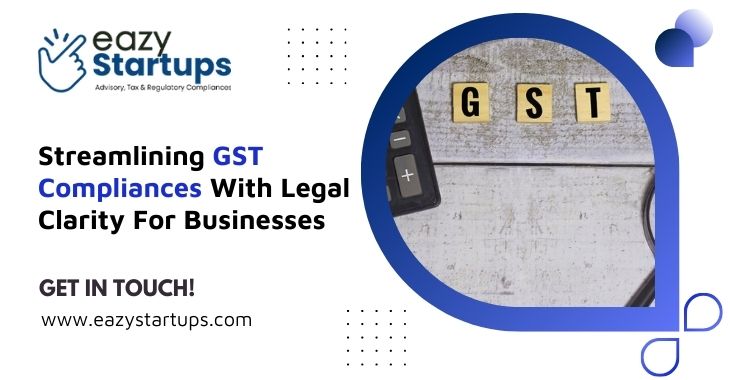As we move into the fiscal year 2024-25, several important updates to India’s income tax laws are coming into effect. These changes, announced by Finance Minister Nirmala Sitharaman in the 2023 budget, are set to impact taxpayers across the country. Understanding these updates is crucial for ensuring compliance and maximizing your tax benefits.
At Eazy Startups, we specialize in providing Online Income Tax Registration and related services in India. We stay ahead of these changes to offer our clients the most accurate and up-to-date guidance. If you’ve been searching for income tax guidance, look no further—Eazy Startups is here to help you navigate the new tax regime with ease.
- Introduction of the New Tax Regime as Default
- Increased Tax Rebate Limit
- Modifications in Surcharge Rates
- Adjustments in Standard Deductions and Exemptions
- Changes in the Presumptive Taxation Scheme
Introduction of the New Tax Regime as Default:
One of the most significant changes for the fiscal year 2024-25 is the introduction of the new tax regime as the default system. Under this regime, taxpayers have the option to choose between the new structure, which features lower tax rates but fewer exemptions, and the old regime, which offers more deductions but higher tax rates.
The new tax regime, now the default option, includes the following tax slabs:-
- Income up to Rs. 3,00,000: Nil
- Rs. 3,00,001 to Rs. 6,00,000: 5%
- Rs. 6,00,001 to Rs. 9,00,000: 10%
- Rs. 9,00,001 to Rs. 12,00,000: 15%
- Rs. 12,00,001 to Rs. 15,00,000: 20%
- Above Rs. 15,00,000: 30%
The new regime aims to simplify the tax filing process, especially for individuals who do not claim numerous deductions and exemptions. However, taxpayers can still opt for the old regime when filing their returns, depending on which system offers them the most benefits.
Increased Tax Rebate Limit:
In a move that benefits a large segment of taxpayers, the rebate limit under Section 87A has been increased under the new tax regime. Previously, individuals earning up to Rs. 5 lakh annually were eligible for a tax rebate of up to Rs. 12,500. Starting in the fiscal year 2024-25, this rebate limit has been raised to Rs. 25,000 for those with taxable incomes of up to Rs. 7 lakh. This change effectively makes those earning below Rs. 7 lakh per annum exempt from paying any income tax under the new regime.
Modifications in Surcharge Rates:
Another important update is the reduction in the highest surcharge rate for high-income earners. Previously, individuals earning over Rs. 5 crore were subject to a surcharge of 37%, which brought their total tax rate to 42.74%. Starting from April 1, 2024, this surcharge has been reduced to 25%, lowering the effective tax rate for this income group to 39%. This change is expected to provide significant relief to ultra-high-net-worth individuals.
Adjustments in Standard Deductions and Exemptions:
For salaried employees and pensioners, the standard deduction of Rs. 50,000 remains available under the new tax regime. Additionally, several exemptions have been introduced, including allowances for transport and conveyance, especially for those with disabilities. However, it’s important to note that many popular exemptions available under the old regime, such as the House Rent Allowance (HRA) and deductions under Section 80C (for investments in LIC, PPF, etc.), are not available under the new system.
Changes in the Presumptive Taxation Scheme:
The presumptive taxation scheme has also seen revisions in the new fiscal year. This scheme simplifies tax filing for small businesses and professionals by allowing them to pay tax based on a presumptive income, rather than maintaining detailed books of accounts. The changes in the scheme include adjustments to the income limits and tax rates, making it more accessible to eligible taxpayers.
Conclusion
The 2024-25 fiscal year brings several key changes to India’s income tax laws, from the introduction of the new tax regime as default to adjustments in surcharge rates and rebates. Understanding these updates is essential for making informed decisions about your tax filings and maximizing your benefits. You must have all the information before you seek Online Income Tax Registration.
At Eazy Startups, we provide comprehensive Online Income Tax Registration and related services to help you navigate these changes smoothly. Whether you’re an individual taxpayer or a business owner, our expert team is here to ensure you stay compliant with the latest tax laws. Stay informed, stay compliant, and let us handle your tax needs with professionalism and care.











Recent Comments